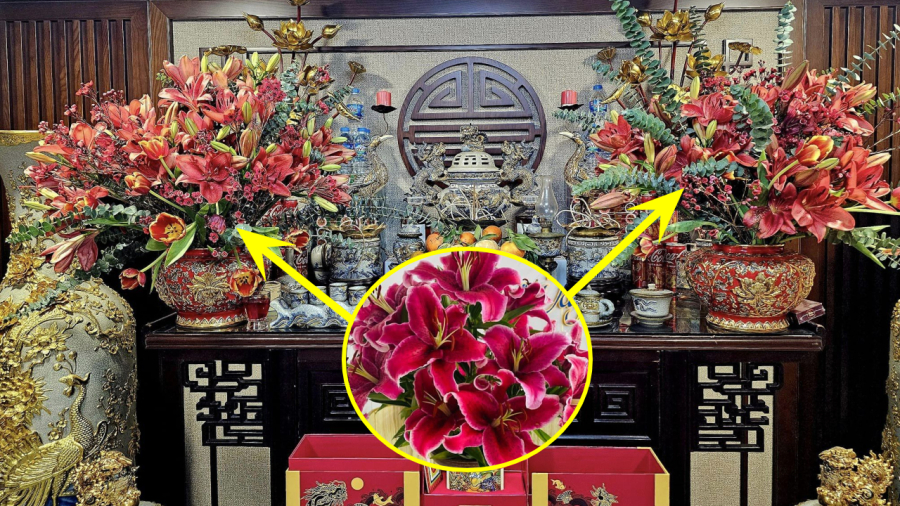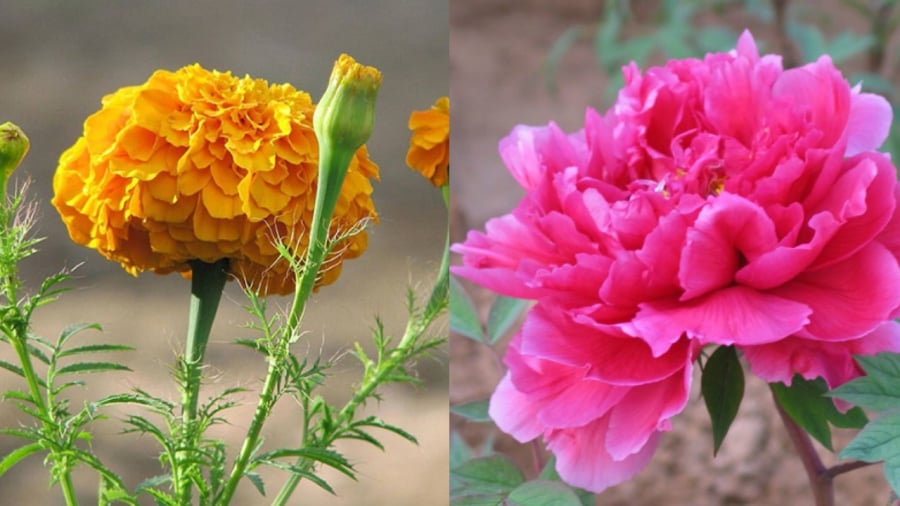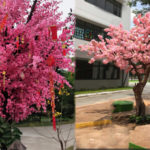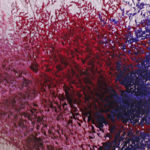During festive seasons, fresh flowers are a must-have on the altars of Vietnamese families. Flowers represent sincerity and reverence towards deities and ancestors, bringing a sense of purity and solemnity to the worship space.
Why do many people avoid placing lilies on the altar?
When choosing flowers for altar offerings, people tend to prefer beautiful flowers with a pleasant fragrance, a nice-sounding name, and positive symbolism. Common choices include chrysanthemums, roses, lotuses, and gladioli.
While lilies are beautiful and fragrant, some believe they are not suitable for altar offerings. This is because festive seasons are usually a time for family reunions, whereas the name “lily” in Vietnamese (“hoa ly”) evokes a sense of separation and parting. Thus, displaying lilies on the altar is thought to potentially affect the harmony and relationships within the family.

Lilies, with their name suggesting separation, are often considered inappropriate for altar offerings.
However, in the belief of many Asian countries, lilies symbolize a century of harmony and represent pure love. As a result, in some places, this flower is chosen for wedding decorations and bridal cars.
Other beliefs hold that lilies represent the virtues of a woman and are offered to the Virgin Mary, seeking happiness and fulfillment. Lilies can also be offered to saints, and white lilies, in particular, can be offered to the Buddha in temples.
Therefore, whether or not to offer lilies during important festivals depends on the beliefs of each individual and family. If the name “lily” is thought to evoke separation, there are plenty of other flower options available.
Some types of flowers that are not used for worship
– Marigolds (Cúc vạn thọ)
Marigolds have bright colors and a fortunate-sounding name, symbolizing longevity and eternity. However, they are not used for worship because of their strong, unpleasant scent, which is considered inappropriate for the pure and sacred atmosphere of worship.

Marigolds (left) and hoa phù dung are usually not chosen for altar offerings.
– Hoa phù dung (Hibiscus mutabilis)
Hoa phù dung has a graceful appearance, but it is never used for offerings because it withers quickly, symbolizing the transience of life and the limitations of time. It is believed that placing this flower on the altar can cause emotional and financial strain within the family.
– Hoa dâm bụt (Hibiscus rosa-sinensis)
Hoa dâm bụt is also not used for altar offerings. This is because the flower is often associated with women of ill repute. Additionally, in the past, this flower was typically grown along fences, which does not align with the solemnity and dignity of the worship space.
– Artificial flowers
While artificial flowers may look similar to real ones, they are not genuine and lack fragrance. Offering artificial flowers demonstrates a lack of sincerity and true devotion to ancestors. Therefore, it is recommended that only fresh, natural flowers be used for offerings.
Information is for reference only.
The Ultimate Guide to Stunningly Realistic Artificial Flowers for Lunar New Year Decorations
Artificial flowers are a popular choice for decorating homes and offices. In this article, Bach Hoa XANH will showcase 20 beautiful artificial flower arrangements that will enhance any space. From classic roses to exotic orchids, these lifelike blooms offer a convenient and long-lasting alternative to fresh flowers. Discover the beauty and versatility of artificial flowers and how they can add a touch of elegance to your surroundings.





































